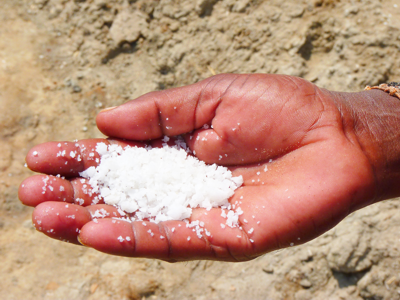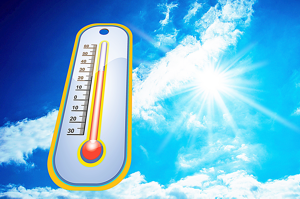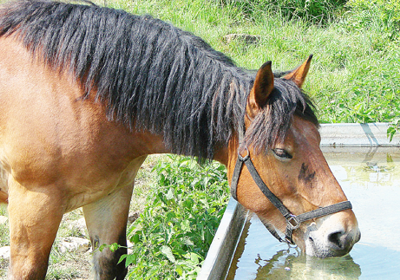Electrolytes Explained
Horses and ponies are undoubtedly tolerant of environmental changes, having evolved very successfully to survive in the harshest of climatic conditions. When the going gets touhg, horses can tolerate a total loss of body fast and up to 50% loss of body protein, but the loss of only 15% of body water can be fatal, clearly demonstrating the need to maintain the correct body fluid balance.

When caring for a horse or pony, the nutrients needed in order of importance are firstly water, secondly, electrolytes and thirdly, dietary energy, which is food. The reason electrolytes are more important than food is that they play a fundamental role in regulation of body temperature. An exercising horse produces a lot of heat in the muscles and the horse copes by sweating large amounts of body fluids to keep cool.  As an example, an event horse competing on a pleasant, not hot, day may lose up to 10 litres of fluids during the warm up and three competition phases. That figure could be a lot higher for an advanced horse on a hot summer day. The sweat contains body salts and significant losses can have dramatic adverse effects on the horse’s temperature regulation and cardiovascular mechanisms, detailed discussion of which is beyond the scope of this article.
As an example, an event horse competing on a pleasant, not hot, day may lose up to 10 litres of fluids during the warm up and three competition phases. That figure could be a lot higher for an advanced horse on a hot summer day. The sweat contains body salts and significant losses can have dramatic adverse effects on the horse’s temperature regulation and cardiovascular mechanisms, detailed discussion of which is beyond the scope of this article.
Electrolytes are essential for water balance and also correct muscle function. When a horse sweats, water is lost, along with sodium, bicarbonates, chloride and potassium, therefore when considering an electrolyte, look primarily at the content of these, along with magnesium and calcium, which should all be incorporated into an electrolyte product in the correct, balanced ratios. With rising temperatures, the working horse that is electrolyte deficient will find it harder to retain water in the body tissues even if drinking and so may stop sweating, leading to a false assumption that he is not too hot, which can be very dangerous and even fatal.
With rising temperatures, the working horse that is electrolyte deficient will find it harder to retain water in the body tissues even if drinking and so may stop sweating, leading to a false assumption that he is not too hot, which can be very dangerous and even fatal.
When at rest, the electrolyte deficient horse may show unusual eating habits, even eating dirt and soil in search of electrolytes. Long term deficiency can lead to kidney problems.
A horse in hard work may need twice as much electrolyte as one that is resting and if ‘hard work’ is defined as something that makes a horse sweat significantly, it could just be a summer hack on a very hot day! Sweating significantly means the horse’s neck, chest and sides are wet, not just a patch under the saddle. As sweating to this extent results in the loss of large amounts of all the main electrolytes, daily replacement is essential.
The management of electrolytes is based on the need to replace what is lost, because electrolytes are soluble, therefore any excess is simply excreted in the urine not stored by the horse. Electrolytes cannot therefore be fed in advance of anticipated losses.
Offering electrolytes in water is not always the best way to feed them, as the horse only gets as much as he drinks. When a horse is refusing to drink this may mean an electrolyte deficiency and a water deficit. The need to also offer clean fresh water alongside the electrolyte can make this method impractical at a competition, so a much better option commonly used is to add the daily electrolyte to the manger feed. Don’t worry needlessly about over-supplementing electrolytes, as they are water soluble and provided fresh, clean drinking water is always available, are easily eliminated. On the other hand, an electrolyte deficiency can have far reaching consequences. Take home message - Fatigue in horses is inextricably linked to water and electrolyte balance and if summers are going to get hotter, then understanding the need for electrolytes in the diet is of growing importance and crucial to the long term health and wellbeing all horses and ponies, especially those working in hot weather.
Take home message - Fatigue in horses is inextricably linked to water and electrolyte balance and if summers are going to get hotter, then understanding the need for electrolytes in the diet is of growing importance and crucial to the long term health and wellbeing all horses and ponies, especially those working in hot weather.



